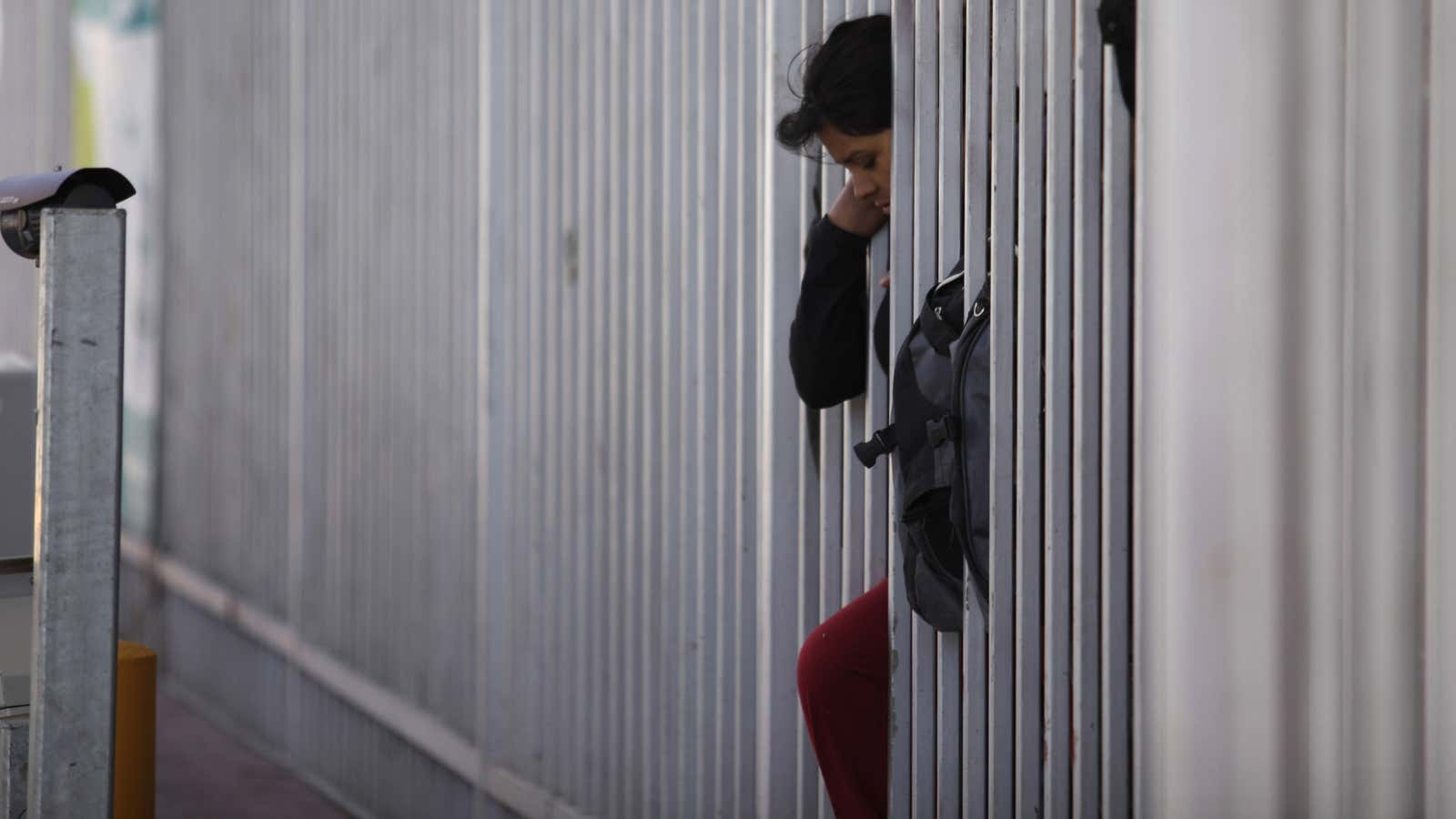In 2008, when I returned from trips abroad at Boston’s Logan International Airport, I was greeted by pictures of the president and the regional director for Homeland Security, Lorraine Henderson, who had the responsibility for the enforcement of immigration law in the northeastern US. In December of 2008, Lorraine Henderson was arrested. Her crime? She employed Fabiana Bitencourt to clean her house. The rub: Fabiana was a Brazilian national who didn’t have authorization to work in the United States. When Fabiana suggested she might return to Brazil for a visit, Lorraine advised that since enforcement was based only on border interdiction, Fabiana ran risks crossing the border but almost no risk in staying put. Lorraine Henderson was charged with “encouraging” and “inducing” an alien to remain in the country illegally.
As we debate an overhaul of America’s immigration laws, this case speaks volumes. We cannot secure the border at the border through interdiction. We can only secure the border inside the border. But that is only possible if we have laws for movement and employment that we, as citizens, are ready to enforce.
In Last Call: The Rise and Fall of Prohibition, writer Daniel Okrent documents that the fundamental failure of Prohibition was overreach: passing a more draconian law than the American public, its politicians and law enforcement agents, were ultimately willing to enforce. Everyone agreed that the sale of “intoxicating liquors” should be taxed, regulated, and controlled—but an absolute ban went too far. Over time, fewer and fewer citizens were willing to enforce a ban that didn’t allow wine with meals or a beer with a picnic or even a snort of whiskey now and again. Once reality and the law diverged, Americans went back to regulation of alcohol with laws the American public were willing to enforce.
Except for a small but vociferous minority, there is very little appetite among the American public for strict enforcement of existing immigration laws.
Most Americans know there are around 10 million unauthorized workers in the US. Estimates in 2008 showed that 30% of miscellaneous agricultural workers, 28% of dishwashers, 23% of butchers, and 20% of chefs and cooks in America were unauthorized workers—and in major American cities these numbers are much higher. People might be willing to “buy American” or even “buy local” but so far there is no uptake for “buy American by Americans” or “buy locally grown but not foreign-harvested.”
People working hard to make a living is just not something most Americans can work up moral indignation about. People feel more guilty for not separating their recycling than employing unauthorized workers. Just as Americans turned a blind eye to their neighbors drinking “sacramental” wine or a bit of home brew when the law was so out of touch with reality, most Americans today know that mobility across borders is win-win. If someone catches migrants at the border, fine, but enforcement is not their business.
The American public has to demand a law for the way we already live. There are two features to a law Americans would be willing to have enforced:
1. There has to be large scale path to citizenship for those whose only “crime” is working in America. A 2011 Pew poll shows that almost two-thirds of Americans favor a path to citizenship as part of immigration reform. The alternative—mass deportations of people who have lived and worked among us for years and decades resulting in one of the largest forced migrations in history—is not going to happen because it shouldn’t happen and because it would be deeply un-American.
2. The law has to provide Americans in the future, both individuals and firms, with reasonable access to foreign workers. This isn’t a debate between existing law and “open borders” but rather between the existing Prohibition-type ban against immigration and regulation of mobility across borders, which most Americans would support. Immigration reform has to include provisions whereby, independent of a path to citizenship, foreign-born workers can—under regulated conditions—meet Americans’ employment needs.
Only once people think the law is fair will enforcement become an option.
